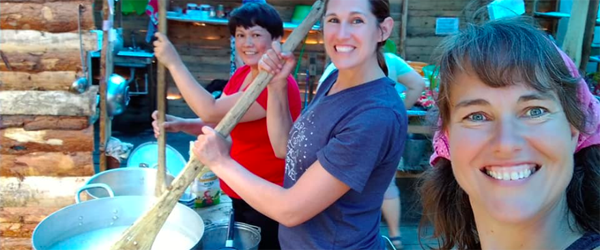
Explore panel: ‘Why did you go with an org? And why SEND?'
SEND offered our 'non-negotiables’—and more
 Joining an organization was essential for my husband and me. The support system it provides can be invaluable. While there were qualities we looked for, we also had a few “non-negotiables”: retirement funds, medical insurance, and good member care.
Joining an organization was essential for my husband and me. The support system it provides can be invaluable. While there were qualities we looked for, we also had a few “non-negotiables”: retirement funds, medical insurance, and good member care.
We chose SEND because we wanted to join a specific work in a particular place. However, as we began to get oriented with SEND overall, we were very impressed with other aspects. We were especially excited by SEND’s focus on unreached people groups, which can be a rare focus to find in this type of work.
Relationships were the key
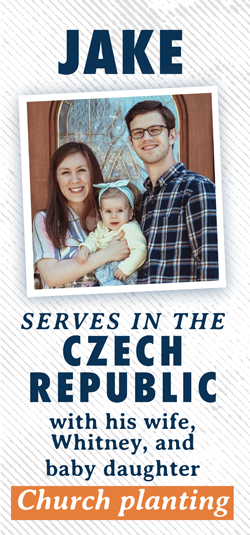 One important reason we went with SEND was relationship. We had a great relationship with our SEND missions coaches, whom we knew from church. As we talked with them and prayed, it seemed like SEND was a great fit for us. Relationships help make the organization personal—something you will value greatly on the field!
One important reason we went with SEND was relationship. We had a great relationship with our SEND missions coaches, whom we knew from church. As we talked with them and prayed, it seemed like SEND was a great fit for us. Relationships help make the organization personal—something you will value greatly on the field!
Some SEND fields have great established ministries, while others are in more of a “pioneering” situation. As you examine your giftings, calling, and personal preferences, you hopefully will find a good field within SEND!
We knew the importance of serving alongside a team
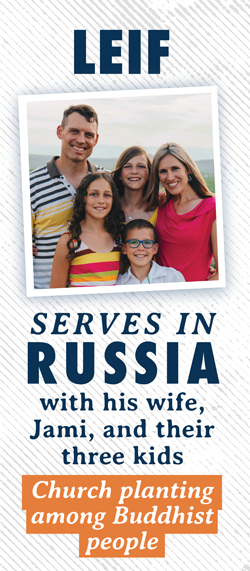
One thing that was very important for us was to go with a team. We see a biblical principle in how God sent people out not as individuals, but as teams, and we had experienced the strength of working together with others. In addition to this, an organization can help by providing systems and support so that you don't have to decide and figure out everything by yourself.
We chose SEND because of the focus on church planting and discipleship and the locations where the organization was working. Beyond that, I have come to respect the willingness to grow and change within the organization, and the continually developing efforts to hear the voices of peoples from around the world on how to best move forward. In my experience, SEND has also done a good job of respecting and being humble with the local churches in the places we work. It shows a desire to live out servant leadership.
We could tap into the organization’s years of experience and wisdom
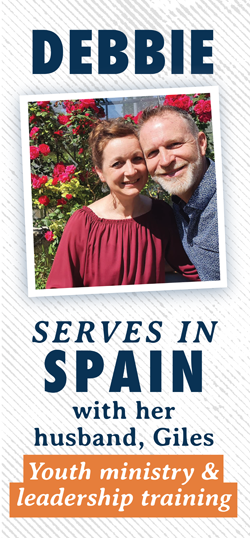 Very early in the process of becoming missionaries, we recognized that our church, although super supportive, had a limitation when it came to the tangible help it could provide.
Very early in the process of becoming missionaries, we recognized that our church, although super supportive, had a limitation when it came to the tangible help it could provide.
We decided that an organization was vital to feel like we were a part of something team oriented. We also appreciated the wisdom that developed from years of experience when it came to decision making and tasks like getting the proper medical coverage; processing legal documents for travel, taxes and visas; and deciding about our kids’ education in a cross-cultural setting. We also wanted an accountable place to process all of God’s financial resources that we would require from our supporters.
If a church can handle all of those aspects, I think that would be ideal, but if not, an organization is super important. We picked SEND amongst two or three that we investigated because we saw their longevity, their experience, and their wisdom as something that very much matched our family’s needs.
An organization gives you the gift of time to learn language and culture
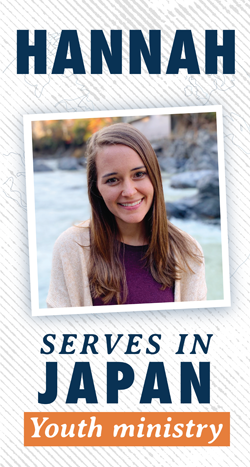 When deciding whether to partner with an organization, I would start with: "What are my options?" I have a friend living in Prague who is an English teacher and is able to work there and be engaged in the community. I think it's great, and I fully support that.
When deciding whether to partner with an organization, I would start with: "What are my options?" I have a friend living in Prague who is an English teacher and is able to work there and be engaged in the community. I think it's great, and I fully support that.
I also think that there are some unique opportunities in going with an organization. For one, with SEND, the first two years of your time overseas are dedicated to language learning—this is unique, and I would even say essential if you're looking at partnering with a local ministry. Language learning is intertwined with culture learning, and those first years on the field can be some of the most beautiful and challenging years. The “slowing” involved in learning a foreign language provides the space to also learn about the culture you are wanting to actively engage in.
I chose SEND because of its long-term presence in Japan, and partnership with Hi-B.A., a Japanese ministry for youth in Japan. Those things were really important to me when I began.
Every person's different, so as you explore mission organizations, feel free to ask questions to make sure they can meet your individual needs. If you're not even sure where to start, this blog post
can give you some ideas of questions that might be relevant to your journey.
The path to missions can feel overwhelming! Our experienced mission coaches will walk alongside you every step of the way.

• Find out how you can become a SEND missionary.
• Explore where and how you can serve with SEND.
• Subscribe to Explore News , to hear real-life stories from our missionary panelists every month.
Additional Posts





